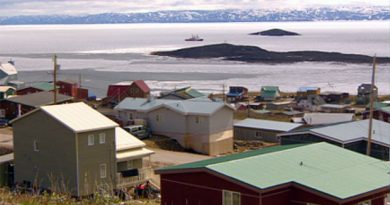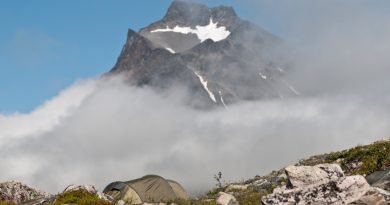Longread – Guardian of the road in Northern Canada
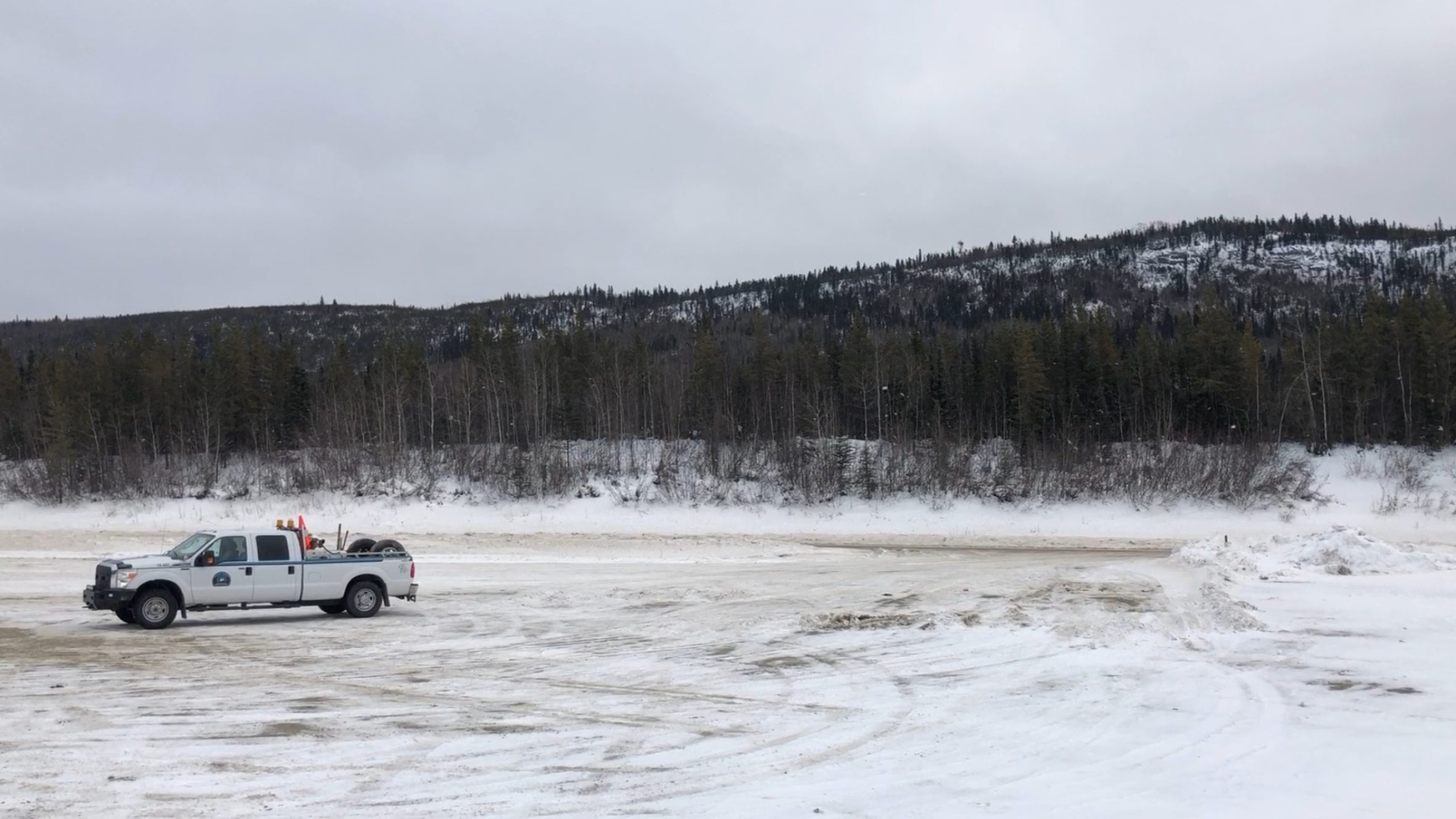
Mickey Hempler has kept drivers safe on a remote northern winter road for two decades — but he won’t be around forever.
I. The bootlegger
It’s been four hours of driving since we’ve passed another pickup truck. Mickey Hempler keeps expecting to see the bootlegger.
“He’ll be down here soon enough,” he says.
Like us, the bootlegger is expected to be travelling from Fort Good Hope, a community where alcohol is restricted, to Norman Wells, where the local liquor store, Hempler tells me, has just opened.
Like a cowboy on the old frontier, he’s learned to recognize the horse before the rider. He’s keeping an eye out for a black pickup.
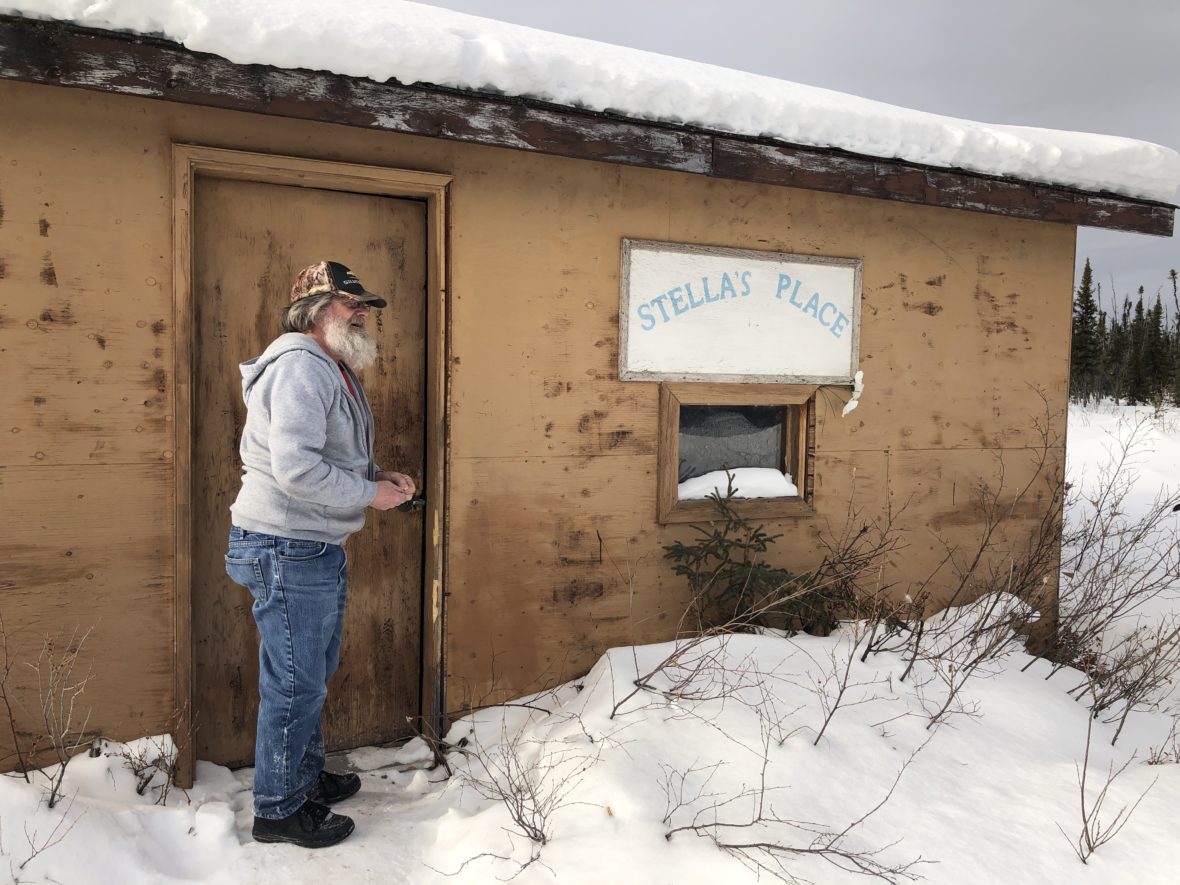
Hempler knows every coming and going on this stretch of road, the longest seasonal road in the territory. But he’s not a cop.
For 20 years, he’s been driving this route as the N.W.T. Department of Infrastructure’s highway maintenance supervisor in the Mackenzie Valley.
He helps build this road, more than 600 kilometres of graded ice and snow that connects Fort Simpson, near the territory’s southern border, with Colville Lake, just above the Arctic Circle.
We drive for another four hours that day. We never see the bootlegger.
II. Mickey
Over four days in March, toward the end of the winter road season, Hempler took me up and down the winter road on his regular trips between the seven connected communities.
Across the valley, Hempler is known as a storyteller. He tells me about winning his first car in a poker game at 14 — a 1950 black Dodge Deluxe he calls “the ugliest car I’d ever seen.”
His father died in a car wreck when he was 15, and his family moved to Dawson Creek, B.C. Hempler dropped out of school, took a job as a labourer, and never went back.

Hempler’s first trip to the North was in 1975. For two days, he rode in a 1926 Ford Model T with wooden spokes and no heater, over hundreds of kilometres of bush trails between Fort Nelson, B.C., and Fort Simpson, N.W.T.
For the next 25 years, he spent his summers hauling goods up the Liard and Mackenzie rivers as a deckhand for Cooper, a barging company out of Fort Nelson.
“Pretty much all I know I learned from them,” he said.
He joined the Department of Transportation in 2000. His first job was to build the last stretch of the winter road to Colville Lake.
His life of experience in the Mackenzie Valley has given him a skillset that’s hard to replicate.
At every point along the winter road, nature is trying to reclaim the land it passes over. Overflows of icy water cover patches with slippery ice and boggy mush. Willows encroach on tight turns and make for blind alleys. Snow bridges blow away and leave steep unexpected drops.
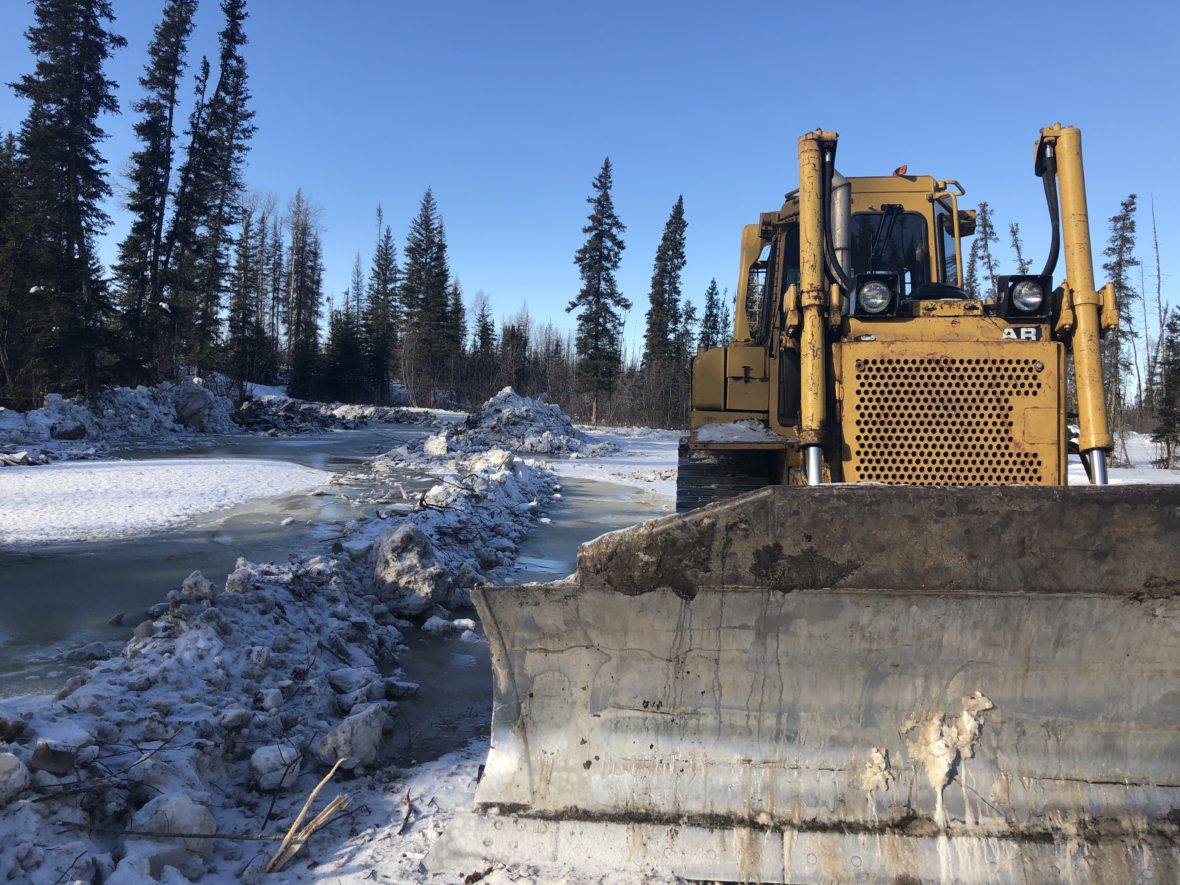
The work of a highway maintenance supervisor is to rally troops of local contractors to beat back nature, and build the infrastructure needed — like an array of one-lane bridges erected between Wrigley and Norman Wells — to rise above it.
When it comes to fighting this battle, Hempler likes to be in the trenches.
“That’s one guy you can call in four o’clock in the morning,” said Dustin Dewar, the Dehcho regional manager for the Department of Infrastructure — Hempler’s boss. “He answers and he’s on the go.”
Hempler takes pride in the ancient government equipment he’s stashed at trouble spots along the highway — two 20-year-old Caterpillars he calls “Precious” and “Buttercup.”
Hempler will spend days on this equipment, improving the road, section by section, clearing brush here, widening a turn there, often with no direction from the department.
“He’s one of the best Cat operators in the Northwest Territories,” said Dewar.
The dangers of the winter road mean sometimes he plays the part of a first responder, too.
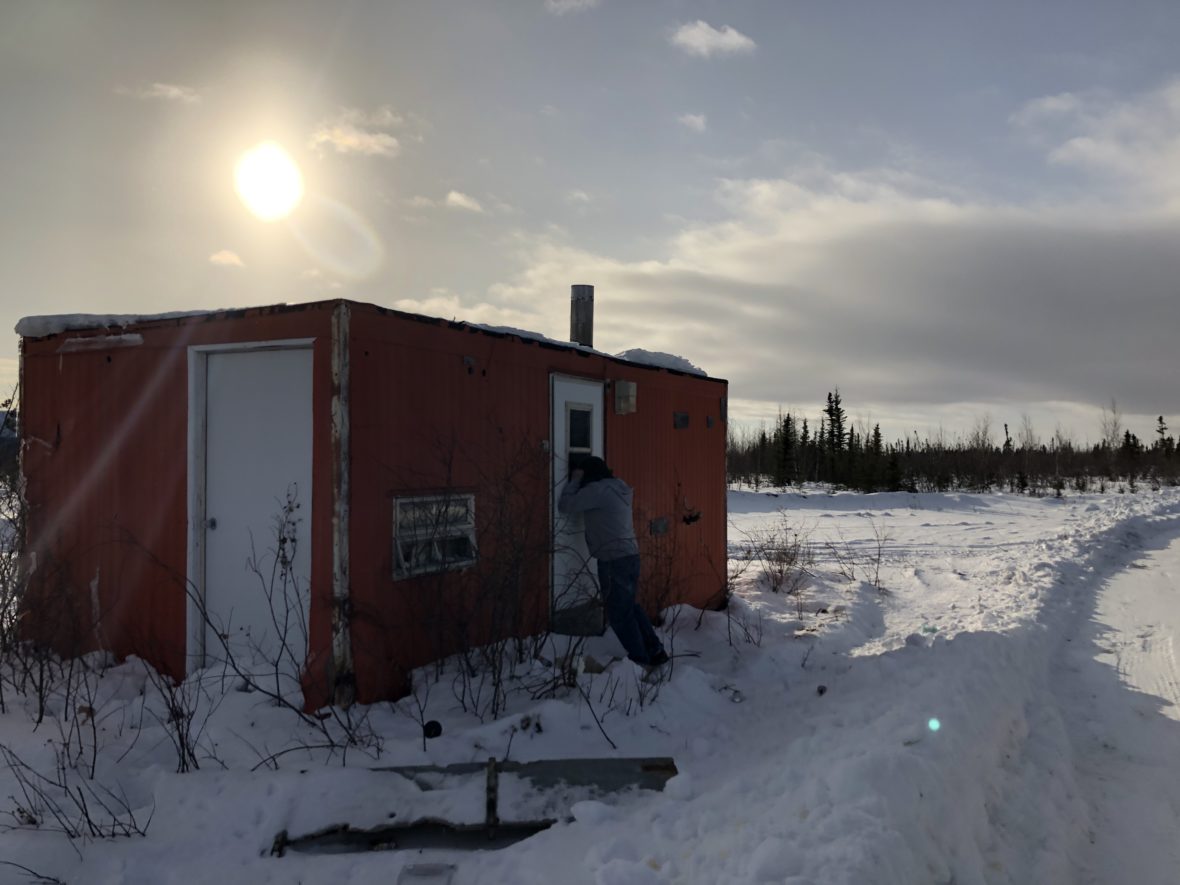
Hempler was the first on the scene when the former mayor of Norman Wells was recently injured in a traffic collision and needed to be medevaced to Edmonton.
He’s been the first to arrive when cars have rolled off bridges and oil tankers have slipped through the ice.
“It’s scary to climb up on top there and look inside the cab,” he said. “I’ve been pretty lucky.”
The winter road can be too much for some drivers. Hempler recalled one time when he came upon a trapped fuel tanker and towed it up a difficult hill. When they reached the top, the driver broke.
“He said, ‘I shouldn’t be here.’ He said, ‘I’m completely out of my element. I would sure like to turn around and go home.’”
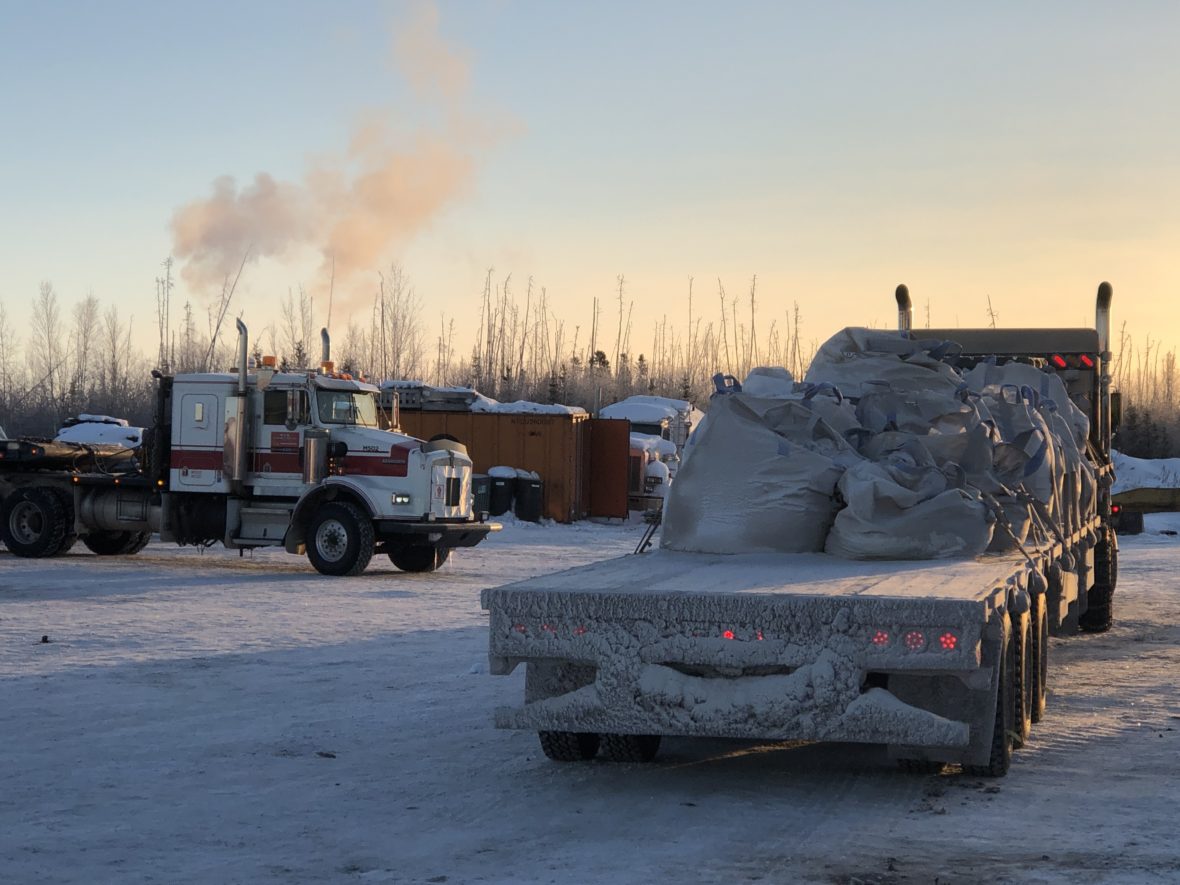
III. Feast or famine
Historically, the job of building and maintaining the winter road has been too vast for any one contractor.
Instead, five local companies from the communities along the road divide responsibility between them.
On our second day, we cross into the territory of a Tulita outfit run by two brothers. They’re called M.Y.B., which stands for “Mind Your Business.”
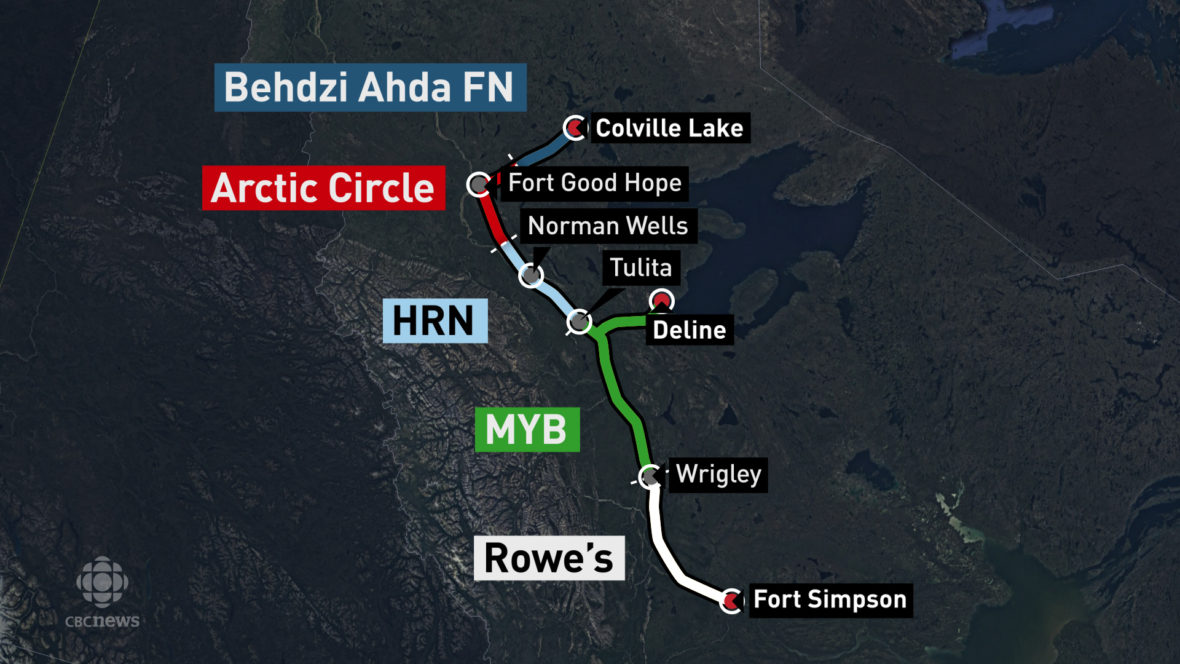
Hempler is well known at the M.Y.B. camp, and the local ladies know him for the rare occasion he beat them at bingo.
The brothers feed Hempler breakfast because, at one time or another, their drivers have all had to rely on his expertise.
Hauling companies, too, rely on Hempler — to keep their drivers in line.
At the M.Y.B. camp, we run into Steve Bassett, whose company Bassett Petroleum has been hauling fuel across the territory for 30 years.
“If they’re out of line, Mickey will tell them what’s wrong,” said Bassett, “and within a short amount of time, I’ll know what they did wrong.”
“It’s for everyone’s benefit… You’ve only got 3 months” when the road is open, Bassett explains. “You want to keep that road in as good a shape as you can.”
The day before, Hempler saw two trucks speeding on the ice bridge outside of Tulita, and planned to give their bosses a safety briefing in the morning.
“The speed limit out there is 20 kilometres per hour for a reason,” Hempler said. “They’ll come complaining to me if there’s a crack in that ice.”
Over the years, the road has improved vastly. Steel crossings have replaced packed snow bridges, which posed more risk for drivers.
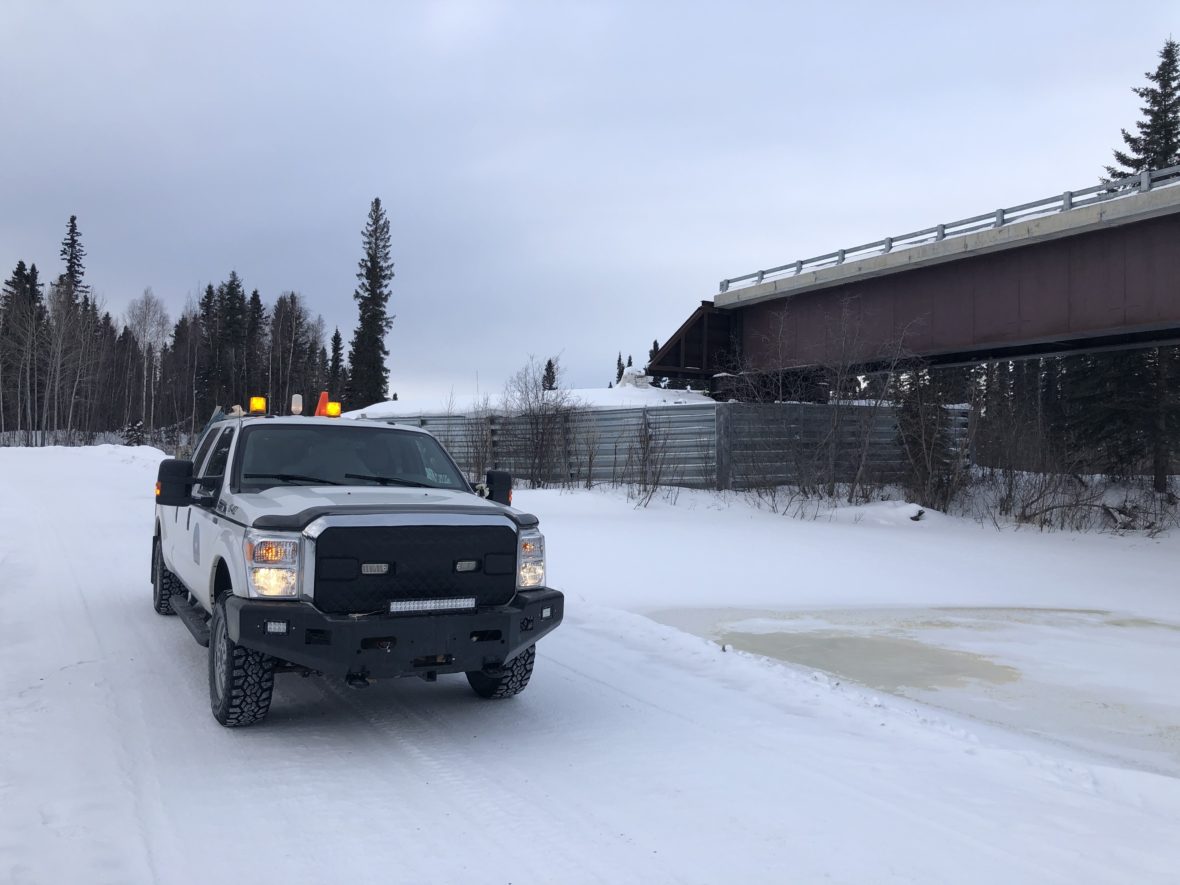
“You used to be driving through three feet of water,” said Dave Hodgson, whose company, H.R.N., maintains the road around Norman Wells. “Anyone can drive ‘er now.”
But the battle against nature is also getting tougher. Some of Bassett’s trucks were stuck in Tulita with no way south when the road abruptly closed last week.
“The weather has changed… whether you want to deny it or not,” said Bassett.
IV. Old hands
Maybe twice a season, Hempler will make the trip north of Norman Wells, to the very end of the winter road.
He says he doesn’t mind the endless driving, but he doesn’t describe it as a perk of the job. At 65, his body is beginning to show signs of wear and tear.
Twice in the past few years, Hempler had a bad spill on ice and had to undergo shoulder surgery. He’s considered retirement, but says the time still hasn’t come.
“When I hate my job, I’ll quit,” he said.
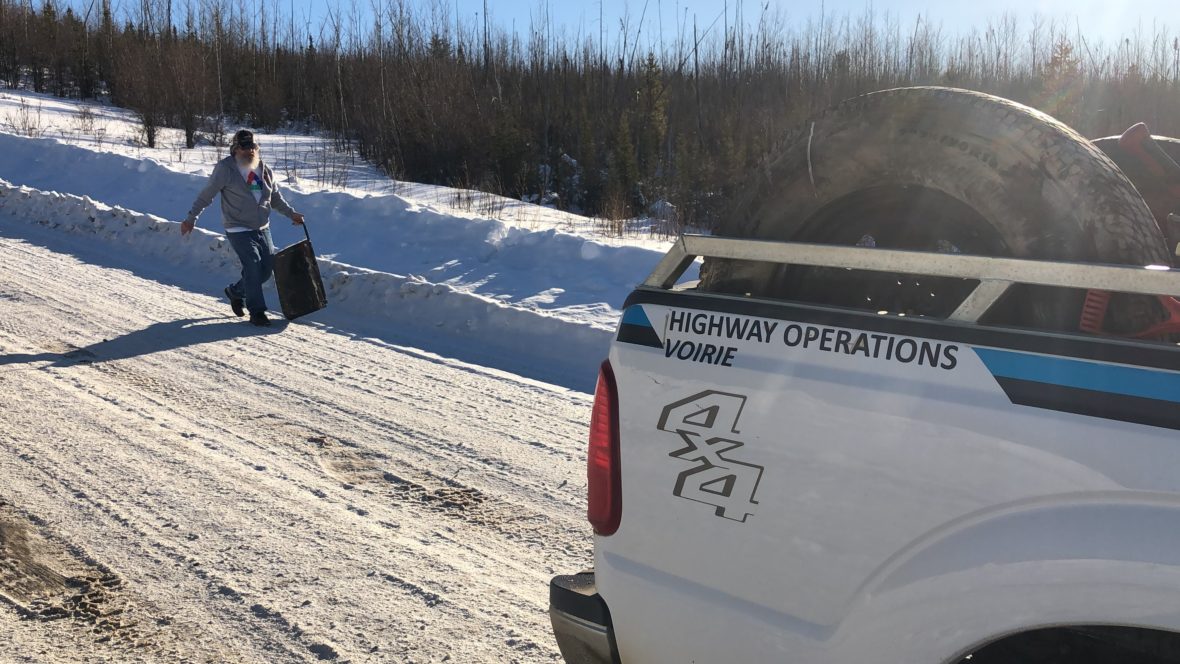
Hempler is far from atypical in his world. Most of the men we met along the way, from drivers to bosses, were upwards of 60 years old.
“My crew’s getting on in years and into the realm of senior citizenship,” said Bassett. “I have truckers who are 72 plus.”
“I’d be willing to train anybody younger to take our place but we’re not finding them,” he said. “I don’t know how else to put it, but it’s worrisome.”
Hempler agrees. He says the younger generation has to “step up and do more of the hands-on stuff.”
At the end of our trip up the winter road, we met some of the younger generation.
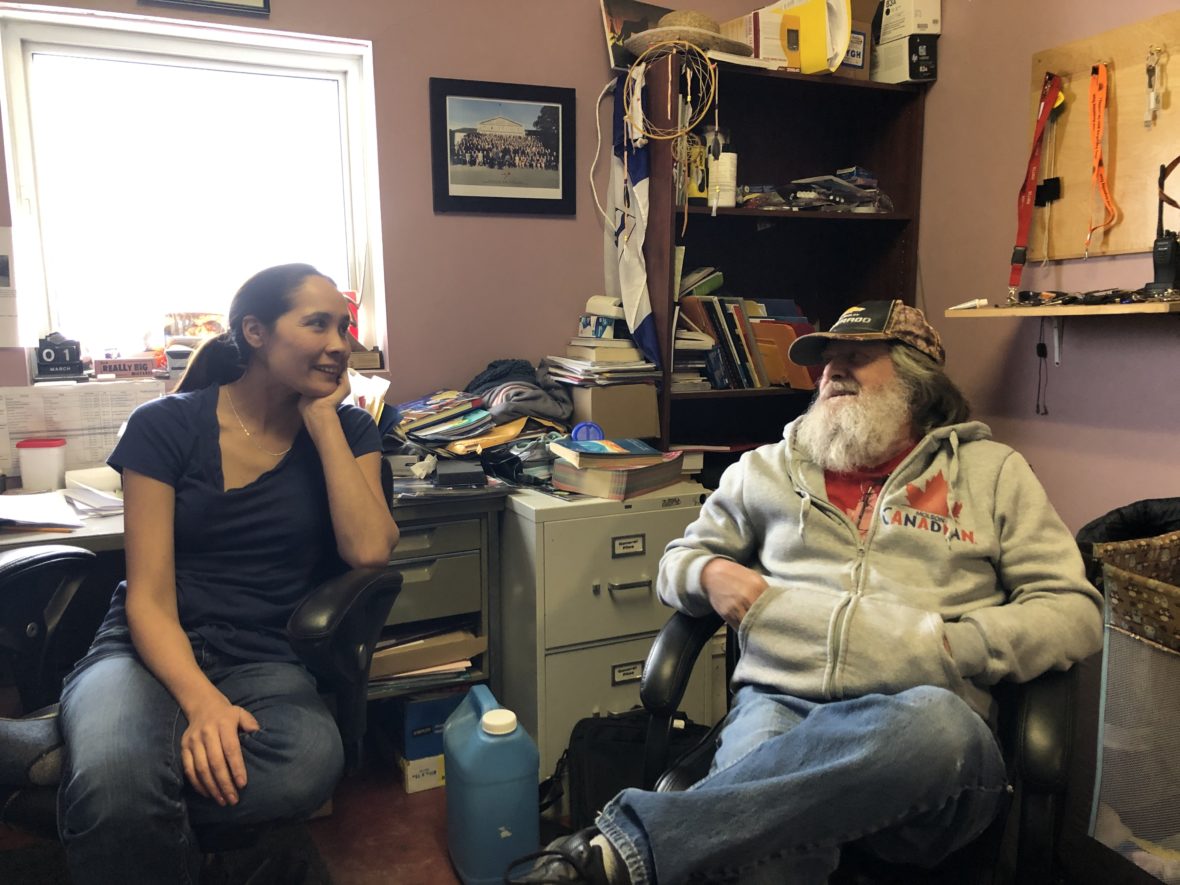
Heather Bourassa, together with her brother Robert, manage the day-to-day operations of Arctic Circle, the contractor responsible for the region around Fort Good Hope.
Bourassa said, when it comes to working long, hard winter hours on the road, it’s a tough sell “not just for young people, but for people in general.”
When a fibre optic line was installed to Fort Good Hope, Bourassa said she and her brother worked “100 days straight, 12 hours a day,” often bringing her kids along with them.
When talk turns to Hempler’s retirement, Bourassa takes a moment to reflect.
Someday, she acknowledges, Hempler will have to retire. It’ll be “a big disruption,” she said.
“When we say ‘the government,’ we think of Dustin [Dewar] or Mickey,” she said. “I feel like it’s more of a partnership when you know them and they know you.
“It’ll be sad, really sad, if he’s gone.”
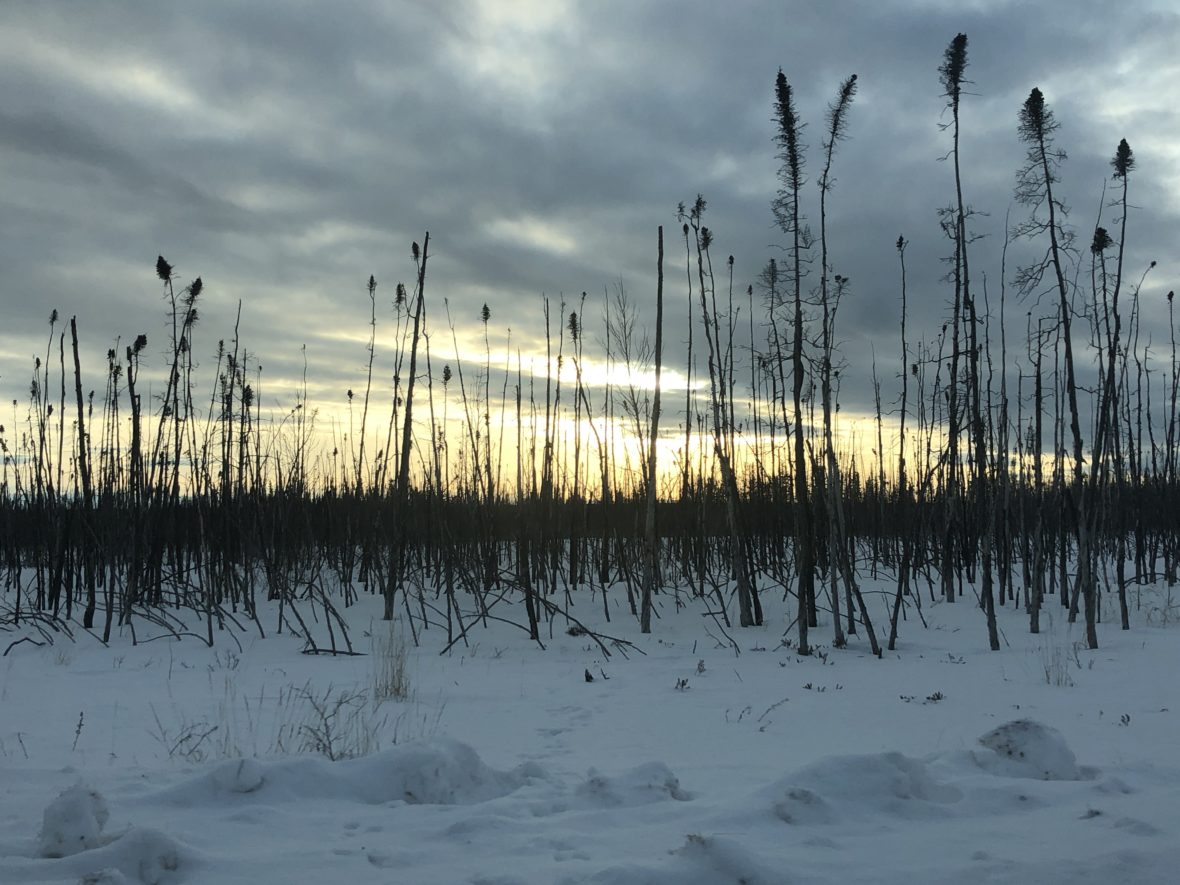
When Hempler does go, it’ll mean more work for contractors, who will be asked to rescue drivers and clean up the road even more.
“We won’t be able to provide the same level of service,” said Dewar, Hempler’s boss.
He’s “invaluable to the department,” he said. “But it’s also something that we can’t rely on forever.”
V. Keep on trucking
In late March, the warm weather hit, and the Mackenzie Valley Highway became a river of mud and slush.
Families who dashed to fill their trucks with summer supplies in the South were stranded, their trucks mired in six inches of mud.
At the bottom of Blackwater Creek, a notorious hill north of Tulita, dozens of pickups lined up, waiting for a rescue.
Towing them up, one by one, was Hempler.
He’s not going anywhere just yet.
Related stories from around the North:
Canada: Northern Canada: mild temperatures cause winter road closure in Northwest Territories, CBC News
Finland: Less snow cover, shorter winters in Finland since 1960s, Yle News
Sweden: Strong winds roar across central Sweden, Radio Sweden

